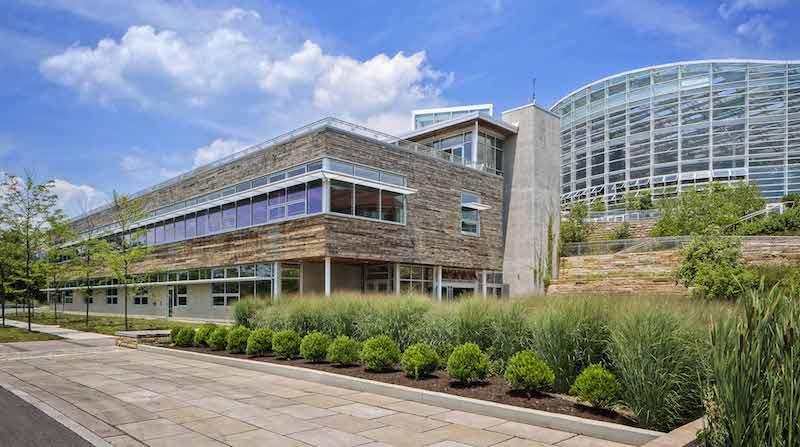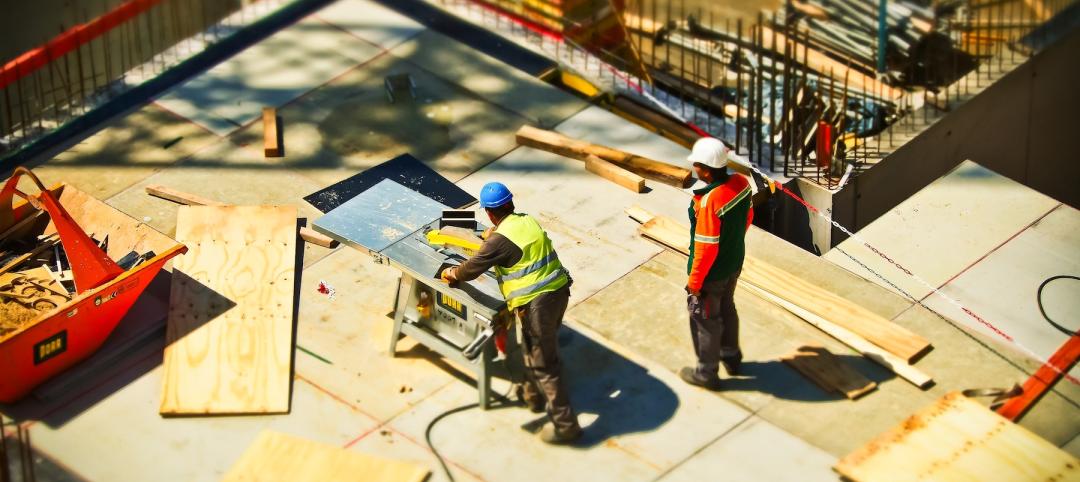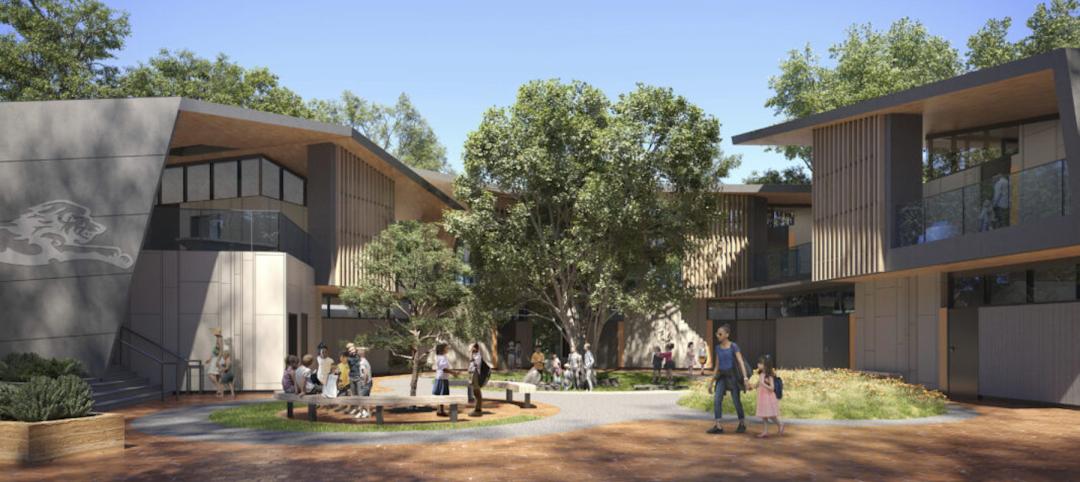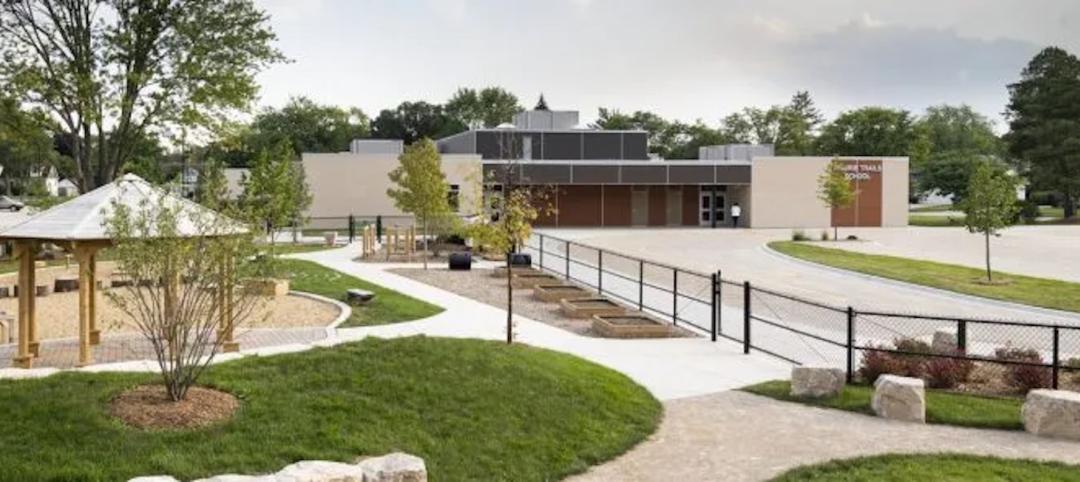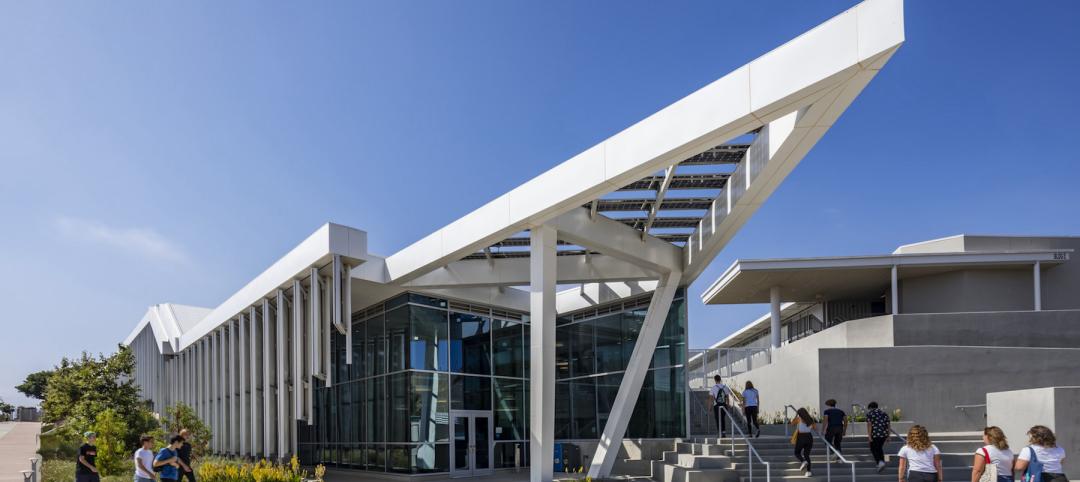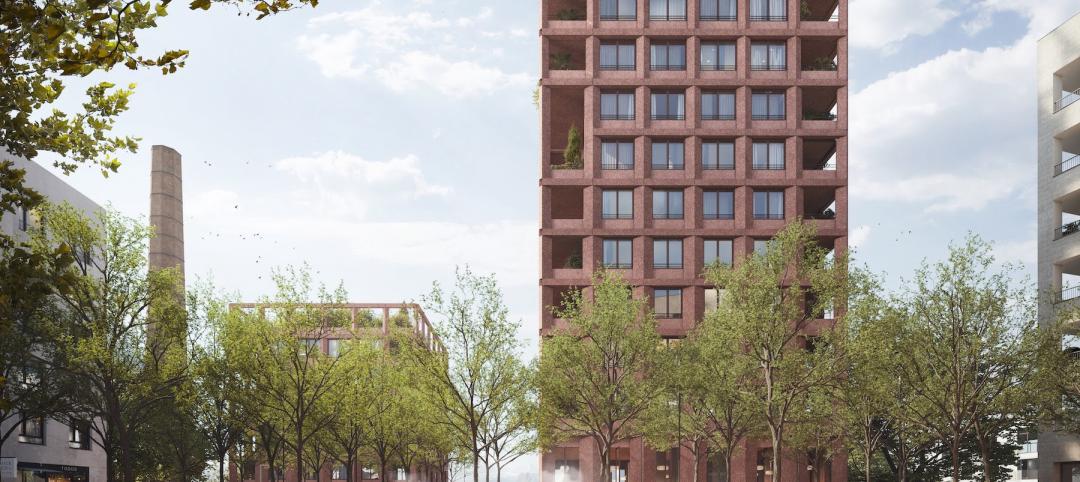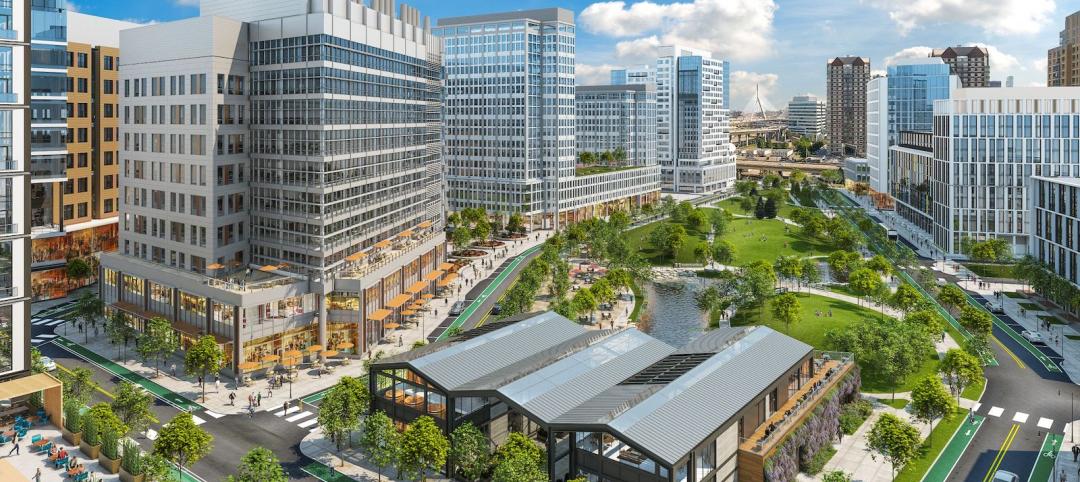The Center for Sustainable Landscapes (CSL) at the Phipps Conservatory and Botanical Gardens in Pittsburgh, Pa., has recently become the first certified Sustainable SITES Initiative v2 Platinum project in the world. The building originally opened in 2012 and was the first and only project to receive SITES 2009 Pilot Four Star certification.
The CSL was built over a previously documented brownfield with the goal of restoring the site. Since 2012, the project has successfully reintroduced 100 native plant species to the surrounding area. The building is net-zero energy and net-zero water thanks to its PV solar panels, a wind turbine, and a system for capturing and treating all water onsite for reuse.
See Also: First photos inside the nearly completed Jewel Changi Airport addition
The new SITES v2 Rating System builds off the 2009 pilot certification. SITES certified projects are better equipped to withstand catastrophic events like floods, droughts, and wildfires. They reduce water and energy demand, improve air quality, and promote human well-being.
SITES is owned and administered by Green Business Certification Inc. Certification is based on a point system: the number of points a project earns determines the certification level it receives (SItes Certified: 70-84 points, SITES Silver: 85-99 points, SITES Gold: 100-134 points, SITES Platinum: 135+ points).
Related Stories
| Aug 4, 2022
Newer materials for green, resilient building complicate insurance underwriting
Insurers can’t look to years of testing on emerging technology to assess risk.
| Aug 4, 2022
Newer materials for green, resilient building complicate insurance underwriting
Insurers can’t look to years of testing on emerging technology to assess risk.
Sustainability | Aug 4, 2022
To reduce disease and fight climate change, design buildings that breathe
Healthy air quality in buildings improves cognitive function and combats the spread of disease, but its implications for carbon reduction are perhaps the most important benefit.
K-12 Schools | Aug 1, 2022
Achieving a net-zero K-12 facility is a team effort
Designing a net-zero energy building is always a challenge, but renovating an existing school and applying for grants to make the project happen is another challenge entirely.
Codes and Standards | Jul 29, 2022
Few projects and properties are being built beyond code
Clients and architects disagree on how well building to code provides resilience, according to a recent report by the American Institute of Architects (AIA) in partnership with Owens Corning.
Concrete | Jul 26, 2022
Consortium to set standards and create markets for low-carbon concrete
A consortium of construction firms, property developers, and building engineers have pledged to drive down the carbon emissions of concrete.
Green | Jul 26, 2022
Climate tech startup BlocPower looks to electrify, decarbonize the nation's buildings
The New York-based climate technology company electrifies and decarbonizes buildings—more than 1,200 of them so far.
Education Facilities | Jul 26, 2022
Malibu High School gets a new building that balances environment with education
In Malibu, Calif., a city known for beaches, surf, and sun, HMC Architects wanted to give Malibu High School a new building that harmonizes environment and education.
Mixed-Use | Jul 18, 2022
Mixed-use development outside Prague uses a material made from leftover bricks
Outside Prague, the Sugar Factory, a mixed-used residential development with public space, marks the largest project to use the sustainable material Rebetong.
Sustainable Development | Jul 14, 2022
Designing for climate change and inclusion, with CBT Architects' Kishore Varanasi and Devanshi Purohit
Climate change is having a dramatic impact on urban design, in terms of planning, materials, occupant use, location, and the long-term effect of buildings on the environment. Joining BD+C's John Caulfield to discuss this topic are two experts from the Boston-based CBT Architects: Kishore Varanasi, a Principal and director of urban design; and Devanshi Purohit, an Associate Principal.


